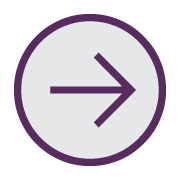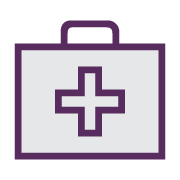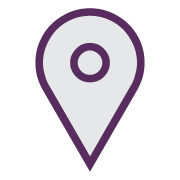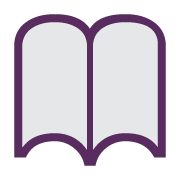ColoradoMAT
Opioid use disorder (OUD) is a life threatening, but treatable disease. Clinicians have an opportunity to improve patient outcomes and ease the transition of patients into recovery through medication for addiction treatment (MAT) with buprenorphine. ColoradoMAT serves as a guide to hospital administrators and frontline clinicians on how to start a hospital-based MAT program and how to provide MAT in the acute care setting. Colorado hospitals can serve as a primary access point for initiating treatment of OUD, decrease overdose deaths and help address the opioid epidemic through expanding patient access to MAT.
Medication for Addiction Treatment Pathway
Patient
Overdose is the number one cause of death in patients less than 50 years of age. Colorado 2017 data: 1,012 drug overdose deaths, 578 opioid-related overdose deaths
Hospital Presentation
Opioid-dependent patients receiving hospital-initiated buprenorphine-naloxone have better outcomes than those who received interventions that did not include immediate buprenorphine-naloxone (ACEP).
Patient Agrees to MAT
If the patient is interested in MAT, first make sure that the patient is in sufficient opioid withdrawal and utilize the ColoradoMAT or hospital algorithm. For questions Rocky Mountain Poison Center can provide real time guidance for assessing withdrawal and conducting buprenorphine inductions. Call 1-800-222-1222 and specify ED buprenorphine induction support.
Patient Declines MAT
The patient decided they are not ready for MAT. Rocky Mountain Crisis Partners offers a follow up program to provide continued support – call 1-888-211-7766, give the phone to the patient and a specialist will set a time to follow-up with the patient.
MAT Inappropriate at this time
Connect to Treatment
Treatment Locator is a powerful, easy to use tool providing up to date information on providers and organizations offering MAT. Easily search for opioid treatment options that can assist patients in securing follow up care. In addition, Rocky Mountain Crisis Partners offers a follow up program to provide continued support – call 1-888-211-7766, give the phone to the patient and a specialist will set a time to follow-up with the patient.
Provide Education on Harm Reduction & Encourage Future Treatment
Consider having a discussion about, or offering materials on harm reduction and provide naloxone either in-hand or via prescription.
The New York Times
Some hospital emergency departments are giving people medicine for withdrawal, plugging a hole in a system that too often fails to provide immediate treatment.



